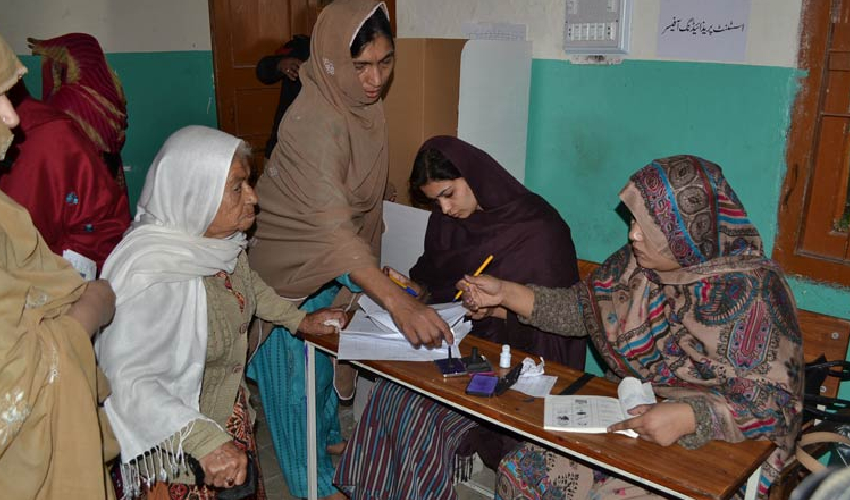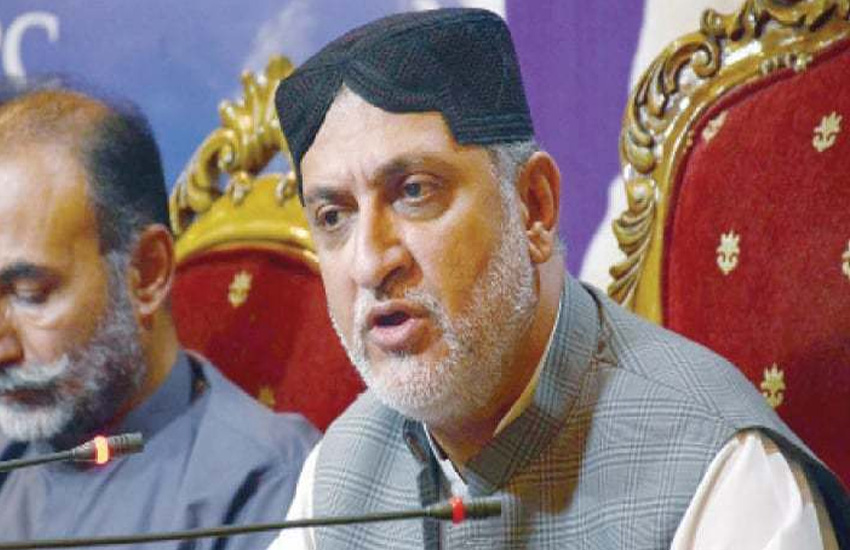In Balochistan, women often face the unfortunate reality of being deprived of their right to vote. Adding to the tragedy is the fact that even in this modern era, people are denied necessities such as primary education, healthcare, electricity, mobile networks, and proper roads.
A 32-year-old woman from the Mughli area of District Surab, unwilling to disclose her identity due to tribal traditions, shared her ordeal.
She highlighted the challenges in obtaining an identity card (CNIC). Despite multiple attempts, bureaucratic obstacles, such as the non-signature of the gazetted officer, have left her without the crucial document.
The struggle persists even after marriage, as the woman and her husband faced difficulties obtaining an identity card in Surab city.
Forced to travel to the Khuzdar NADRA Center, miles away from their district, they found no respite.
Estimates suggest that over 8 lakh women in Balochistan lack identity cards due to NADRA's limited access to rural areas and rural women's restricted access to NADRA offices.
Statistics from the Department of Statistics reveal that out of more than 3 million women in the province, only 2.3 million are registered with the Election Commission. This leaves over 7 lakh women disenfranchised.
Interviews with women across Balochistan reveal that many are not allowed to go to the city due to societal norms. Men often hinder their access to NADRA, complicating the already challenging ID card procedure.
Poverty emerges as another significant barrier to obtaining identity cards for women. Despite being respected, women in Balochistan are denied basic rights.
They bear the responsibility of various tasks, from fetching firewood to managing livestock, yet they are deprived of fundamental rights such as education, clothing, and sufficient food.
A semi-governmental organization, the Population Council, reports alarming figures, with 47 out of 1,000 children in the province dying before reaching one year, and 27 percent of children suffering from malnutrition.
The majority of Balochistan's population, grappling with poverty and lacking basic resources, remains indifferent to essential needs like identity cards, voting rights, roads, and education.
During elections in Pakistan, the results from Khuzdar polling stations are delayed, reflecting the challenges faced in the province. The largest district in Pakistan, Khuzdar, lacks connecting roads, compelling people to endure long journeys where basic facilities, including education and health, are subpar.
In terms of education, there are 12,000 schools in the province, with one teacher for every 6,000 schools. Official statistics indicate that 58 percent of girls and 38 percent of boys are deprived of education, and only 6 out of 100 rural girls pass middle school.
Rubina Karim Shahwani, manager of Benazir Bhutto Women Center Khuzdar, highlighted the struggles women face in obtaining basic rights, even with court decisions in their favor.
Saba Zehri, a social activist, emphasized the importance of an identity card as more than just an identity but as a document of fundamental rights.
In the 2018 general elections, Balochistan witnessed a significant disparity in female turnout, ranging from 56 percent in some areas to as low as 24 percent in Quetta.
It was only in NA-271 that the number of female voters was recorded, enabling a woman candidate to secure victory.
Former MPA Yasmin Lahri emphasized that women not only need an ID card to vote but also require an end to their backwardness, urging the provision of all basic rights.


























